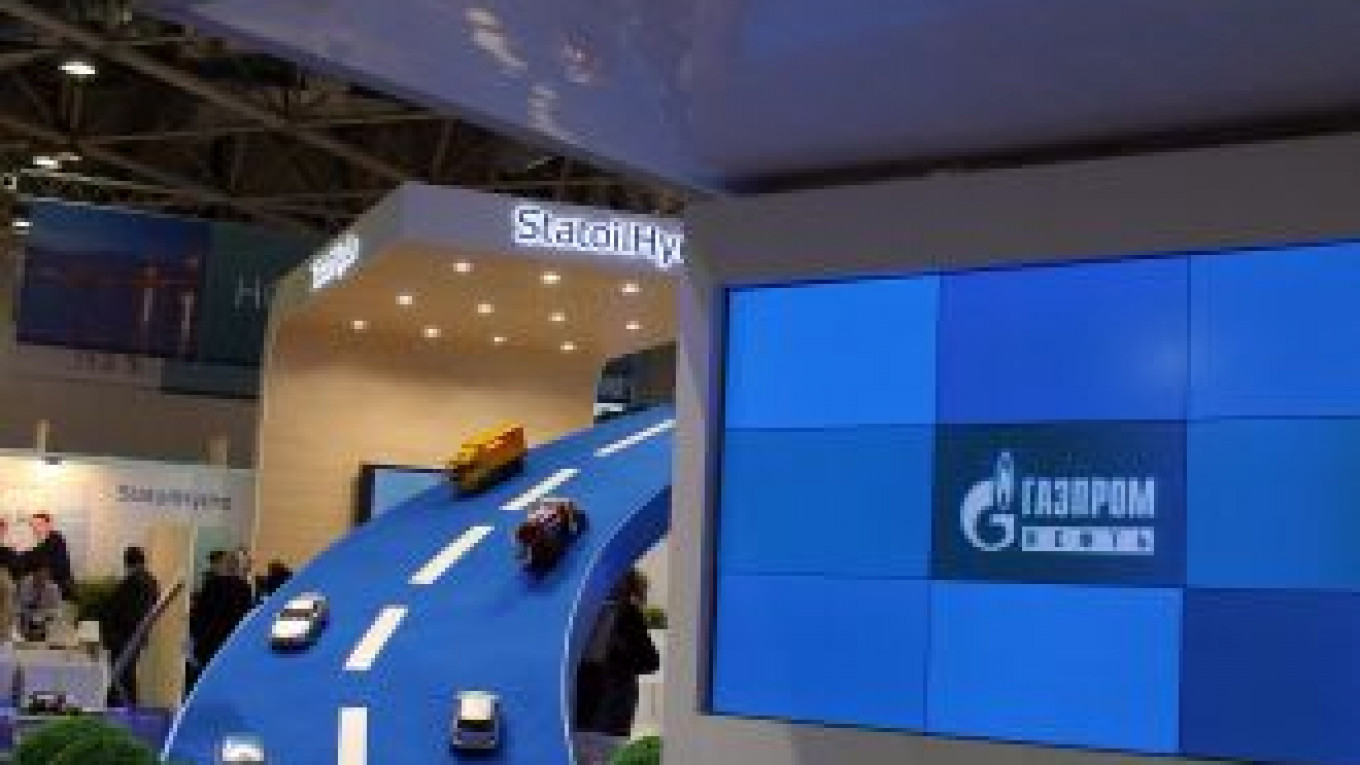Gazprom Neft said Tuesday that it began construction on facilities for the mixing, packaging, storage and shipment of automobile and industrial lubricants to capture a greater share of the eastern Russian and Kazakh markets.
The $65 million facilities are at the Omsk Lubricant Plant, which is part of the Omsk Oil refinery, Gazprom Neft said in a statement.
The new facilities will expand the production of SibiMotor economy-class motor oil for automobiles and Gazprom Neft-brand industrial lubricant. Production of premium G-Energy motor oil — now made in Italy and unavailable in Russia — will be partially carried out there as well.
Total production of lubricants at the plant will rise from the current level of 65,000 tons to 120,000 tons per year.
New storage capacity for both raw materials and finished products and packaging lines are expected to be in service before the end of next year. New blending facilities with a capacity of 70,000 tons will be finished within a year after that.
Gazprom Neft will invest 2 billion rubles ($65 million) in the project by its completion, it said in the statement. The company plans to occupy 20 percent of the lubricant market in the Asian part of Russia and 30 percent of the market in Kazakhstan by 2015.
Gazprom Neft accounted for 15 percent of the Russian lubricant market last year, having sold 425,000 tons of the products.
Pavel Sprokov, development director of the Kortes research agency, characterized the market for lubricants as "limited." He said consumption of all automobile products is growing in Kazakhstan more than in Russia.
In Russia, economic recovery and a state program to encourage the purchase of new cars is having a beneficial effect on the market for automobile products, Sprokov added.
The Russian program, introduced at the beginning of this year, offers owners of cars 10 years old or older a payment of 50,000 rubles (about $1,600) toward the purchase of a new car, in exchange for taking the old car out of use.
At the beginning of this year, of 19.6 million cars on Russian roads, 56.9 percent of the total were more than 10 years old.
The Omsk Oil Refinery has also opened a unit for the production of polymer-modified asphalt binder and asphalt emulsion, two important components of paving asphalt, Gazprom Neft said Tuesday.
The new products will incorporate technical improvements that will allow them to remain stable to temperatures as low as minus 30 degrees Celsius and have a service life of seven to 10 years, while costing less than 1 percent per kilometer more to use than traditional products.
The Sibur company will supply the polymer to make the substances, Gazprom Neft said. The unit's capacity is 10,000 tons of asphalt binder and 3,000 tons of emulsion.
A Message from The Moscow Times:
Dear readers,
We are facing unprecedented challenges. Russia's Prosecutor General's Office has designated The Moscow Times as an "undesirable" organization, criminalizing our work and putting our staff at risk of prosecution. This follows our earlier unjust labeling as a "foreign agent."
These actions are direct attempts to silence independent journalism in Russia. The authorities claim our work "discredits the decisions of the Russian leadership." We see things differently: we strive to provide accurate, unbiased reporting on Russia.
We, the journalists of The Moscow Times, refuse to be silenced. But to continue our work, we need your help.
Your support, no matter how small, makes a world of difference. If you can, please support us monthly starting from just $2. It's quick to set up, and every contribution makes a significant impact.
By supporting The Moscow Times, you're defending open, independent journalism in the face of repression. Thank you for standing with us.
Remind me later.






